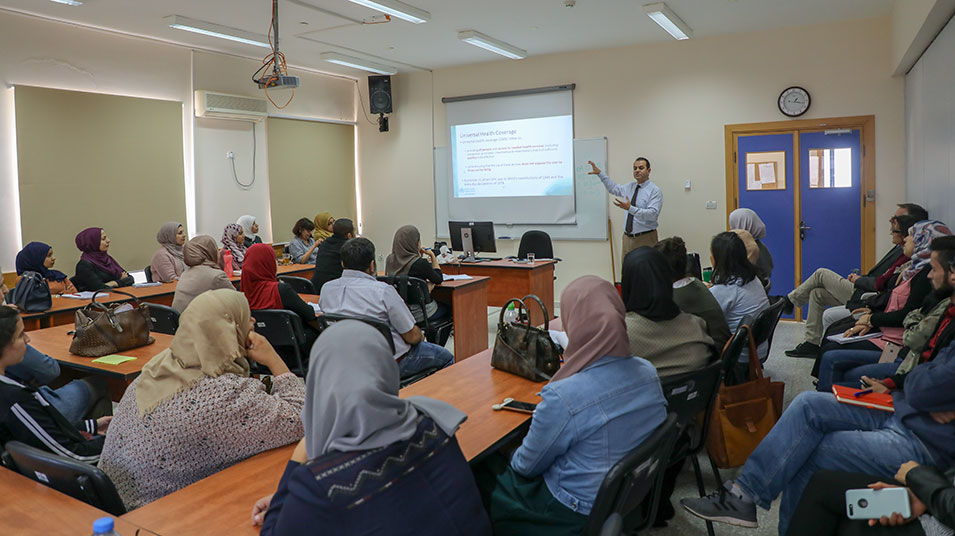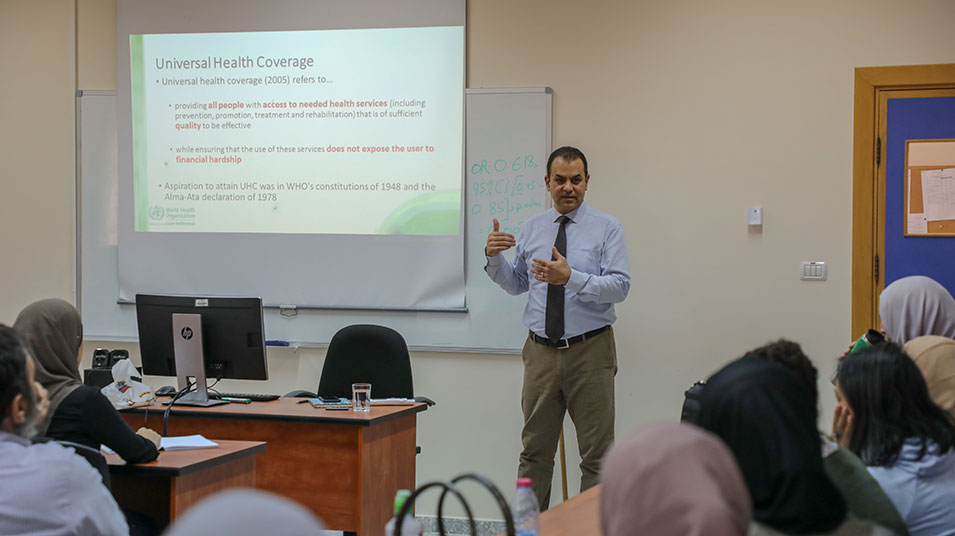Health systems expert explores applicability of universal healthcare in public lecture
Awad Mataria, regional adviser at the Eastern-Mediterranean Regional Office of the World Health Organization, gave a lecture on universal health coverage and its feasible implementations, on Saturday, October 27, 2018.
The lecture, organized by the Institute of Community and Public Health at Birzeit University, began with a definition of a health system: All institutions and services whose primary purpose is to promote, maintain, and restore health.
The goals of a health system, Mataria said, are improving the health of the population, responding to non-medical needs, and providing financial protection in health - such that paying for health care by an individual would not result in financial risk.
Mataria also discussed the building blocks that make-up health systems, which are: service delivery, health workforce, health information systems, access to essential medicines, financing, and leadership/governance.
Mataria then pivoted to the main focus of the lecture, universal health coverage. He commented that universal coverage works by increasing the percentage of those covered by the current health system, increasing the percentage of the services provided, and decreasing the costs.
“Universal health coverage works by providing all people with access to needed health services that are of a sufficient quality to be effective, while ensuring that use of those services does not expose the user to financial hardships,” Mataria said.
As it is currently envisioned, universal health coverage is far too expensive and complex to apply, Mataria noted. However, a system where everyone is covered for most health services at a reasonable cost is applicable.
“We can achieve universal health coverage by strengthening our existing health systems in such a way that we maximize the number of people covered and services provided, while decreasing the associated costs,” Mataria summarized.









